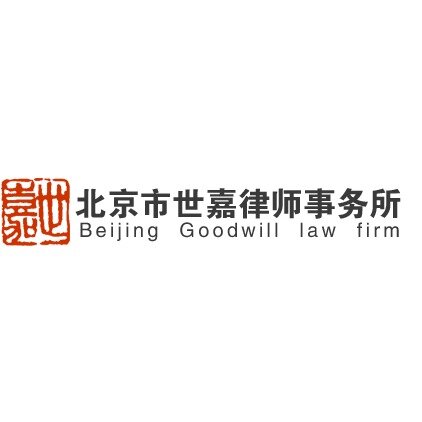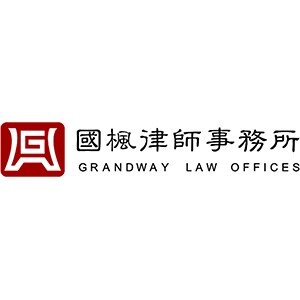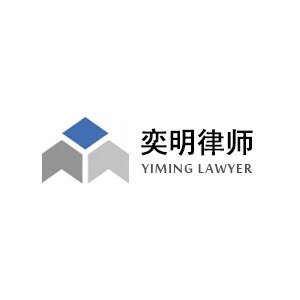Best Conveyancing Lawyers in Beijing
Share your needs with us, get contacted by law firms.
Free. Takes 2 min.
Free Guide to Hiring a Real Estate Lawyer
List of the best lawyers in Beijing, China
About Conveyancing Law in Beijing, China
Conveyancing in Beijing, China refers to the legal process of transferring ownership of real property from one party to another. It involves a series of administrative and legal steps designed to ensure the legality and smooth transition of property rights. Typically, conveyancing relates to residential or commercial real estate transactions, including buying, selling, or transferring property titles. As one of China’s most dynamic property markets, Beijing has its own local regulations and unique practices alongside national real estate laws, making it vital to understand the specific requirements for lawful property transfer.
Why You May Need a Lawyer
Many people encounter challenges during the conveyancing process due to the complexity of real estate regulations and documentation in Beijing. You may require a lawyer’s assistance in the following situations:
- Buying or selling property, whether residential or commercial
- Transferring property between family members or due to inheritance
- Navigating issues related to land use rights and collective ownership
- Understanding or resolving disputes over property boundaries or ownership
- Ensuring compliance with local and national real estate regulations
- Reviewing and drafting contracts to avoid loopholes or legal pitfalls
- Handling mortgage procedures, including lender requirements and payments
- Verifying authenticity and legality of documents and titles
- Responding to government or developer notices regarding the property
- Facilitating transactions for foreign buyers or international investors
A lawyer’s expertise can reduce risk, prevent costly mistakes, and provide peace of mind throughout the conveyancing process.
Local Laws Overview
Conveyancing in Beijing is governed by a combination of national laws, such as the Property Law of the People’s Republic of China and the Contract Law, as well as local municipal regulations. Key aspects include:
- Land Ownership - All urban land in China, including Beijing, is state-owned. Individuals and entities can acquire land use rights, not land title.
- Property Title Registration - Property rights must be registered with the local Real Estate Registration Center. Ownership is not official until the new owner is recorded.
- Contracts and Notarization - Written contracts are required for conveyancing transactions. Certain documents may need notarization, especially for foreign-related deals.
- Tax and Fees - Buyers and sellers are responsible for various transaction taxes and fees, such as deed tax, value-added tax, and stamp duty. Timely payment is essential for completion.
- Foreign Ownership Restrictions - There are specific limitations and conditions for foreign individuals or companies wishing to purchase property in Beijing.
- Mortgage Regulations - Banks and financial institutions set strict conditions and verification requirements for mortgaged purchases.
- Pre-Sale and New Development - Special rules govern purchases made “off-plan” or in newly developed areas, with protections for buyers against developer risk.
Understanding these laws is crucial for smooth, legal property transfers in Beijing.
Frequently Asked Questions
What is the first step in a property transaction in Beijing?
The initial step is typically negotiating and signing a formal sale and purchase agreement, followed by conducting due diligence on the property and the other party.
Can foreigners purchase properties in Beijing?
Yes, but there are restrictions. Foreign individuals must have worked or studied in China for at least one year, and they can only purchase one unit for personal use. Corporate acquisitions face different restrictions.
How is property ownership recorded and protected in Beijing?
Ownership is recorded at the Real Estate Registration Center. The official property ownership certificate is proof of legal ownership and is crucial for protecting property rights.
What taxes must a buyer pay during conveyancing?
Common taxes for buyers include deed tax and, in some cases, value-added tax if purchasing from a developer. Accurate calculation and timely payment are essential.
What is a land use right, and how does it affect property ownership?
Land use rights grant the holder permission to use the land for a fixed term (typically up to 70 years for residential property). When you buy property, you acquire these rights, not the land itself.
How long does the conveyancing process take in Beijing?
While each case varies, typical residential transactions can take anywhere from one to three months, depending on document preparation, approvals, and registration processing.
Do I need to have the sale contract notarized?
Notarization is not always mandatory for domestic transactions but may be required for certain circumstances, such as involving foreign parties or inheritance issues.
What happens if there are disputes or irregularities in the transaction?
Disputes can be resolved through negotiation, mediation, or legal proceedings. Engaging a lawyer early can help prevent or resolve conflicts efficiently.
Can property be inherited in Beijing, and what is the process?
Yes, inheritance of property is allowed. The heirs must complete inheritance registration according to the law, which may involve notarial certificates and presentation of valid proof.
Is it possible to buy an uncompleted (off-plan) property in Beijing?
Yes, buying off-plan is common, but buyers should closely review the developer’s credentials and ensure that pre-sale permits are in place to protect their interests.
Additional Resources
If you need more information about conveyancing in Beijing, the following resources may be useful:
- Beijing Municipal Commission of Housing and Urban-Rural Development - Provides official policies and regulatory guidance on real estate transactions
- Beijing Real Estate Registration Center - Handles all property title registrations and official certifications
- China Notary Association - Offers guidance on notarization requirements in property transactions
- Qualified local law firms specializing in real estate and conveyancing matters
- Legal aid centers that may assist local residents with free or low-cost conveyancing advice
Next Steps
If you need legal assistance for conveyancing in Beijing, consider the following steps:
- Gather all relevant documents such as identification, property certificates, and contracts
- Consult with a qualified local lawyer who specializes in real estate and conveyancing law
- Request an initial assessment or consultation to understand the potential risks and requirements
- Engage legal assistance for contract drafting, due diligence, and negotiations
- Make sure you fully understand all procedures, costs, and timelines before signing any documents
- Stay in communication with your lawyer throughout the transaction to address any issues quickly
Taking these steps can help protect your interests and ensure a successful property transaction according to the laws and customs of Beijing, China.
Lawzana helps you find the best lawyers and law firms in Beijing through a curated and pre-screened list of qualified legal professionals. Our platform offers rankings and detailed profiles of attorneys and law firms, allowing you to compare based on practice areas, including Conveyancing, experience, and client feedback.
Each profile includes a description of the firm's areas of practice, client reviews, team members and partners, year of establishment, spoken languages, office locations, contact information, social media presence, and any published articles or resources. Most firms on our platform speak English and are experienced in both local and international legal matters.
Get a quote from top-rated law firms in Beijing, China — quickly, securely, and without unnecessary hassle.
Disclaimer:
The information provided on this page is for general informational purposes only and does not constitute legal advice. While we strive to ensure the accuracy and relevance of the content, legal information may change over time, and interpretations of the law can vary. You should always consult with a qualified legal professional for advice specific to your situation.
We disclaim all liability for actions taken or not taken based on the content of this page. If you believe any information is incorrect or outdated, please contact us, and we will review and update it where appropriate.














